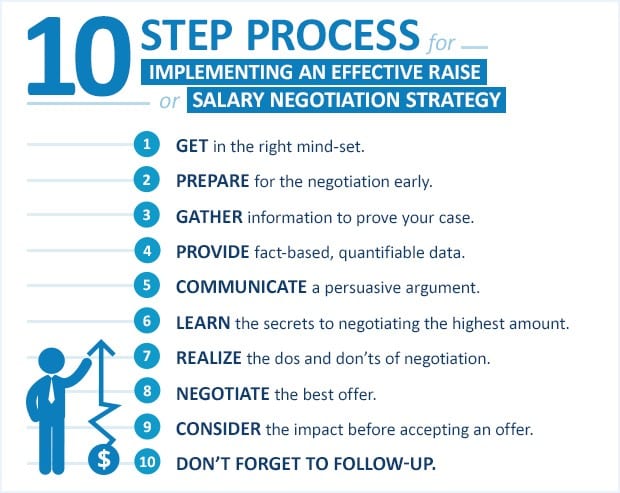“how to negotiate a raise: tips and strategies
Related Article how to negotiate a raise: tips and strategies
- 10 Essential Skills For A Successful Career In Finance
- The Threat of World War III and Depopulation: An Analysis
- Google Ads: The Ultimate Guide with Examples
- A Beginner’s Guide to Investing In The Stock Market
- how to Earn Money Through Google AdSense
Table of Content
- 1 Related Article how to negotiate a raise: tips and strategies
- 2 Video how to negotiate a raise: tips and strategies
Video how to negotiate a raise: tips and strategies
how to negotiate a raise: tips and strategies

Are you feeling underpaid and undervalued at your job? Do you want to ask for a raise, but don’t know where to start? Negotiating a raise can be a daunting task, but with the right strategy and preparation, you can successfully get the salary you deserve.
In this article, we’ll provide you with tips and strategies on how to negotiate a raise, from researching your worth to confidently asking for what you want.
Why You Should Ask for a raise
Before we dive into the nitty-gritty of negotiating a raise, let’s talk about why you should ask for one in the first place. Here are a few reasons why:
- You’re worth it: If you’ve been with your company for a while and have consistently delivered excellent work, you deserve to be paid accordingly.
- Cost of living: The cost of living is constantly increasing, and if your salary isn’t keeping pace, you might find yourself struggling to make ends meet.
- Job satisfaction: Being underpaid can lead to low job satisfaction and decreased motivation. A raise can help boost your morale and engagement.
Researching Your Worth

Before you can ask for a raise, you need to know what you’re worth. Here are some steps to help you research your worth:
- Glassdoor: Use online resources like Glassdoor to find out what others in your industry are earning. You can also use online salary calculators to determine your worth.
- Networking: Talk to friends, colleagues, and mentors in your industry to get an idea of what they earn.
- Industry reports: Read industry reports to find out what the average salary is for someone in your position.

Preparing Your Case
Once you know your worth, it’s time to prepare your case for a raise. Here are some steps to follow:
- Keep track of your accomplishments: Keep a record of your achievements and contributions to the company. This can include successful projects, positive feedback, and any additional responsibilities you’ve taken on.
- Prepare examples: Choose specific examples of your accomplishments and how they’ve positively impacted the company. Be specific about what you did, how you did it, and what the results were.
- Identify your strengths: Make a list of your strengths and how they align with the company’s goals.

Scheduling the Meeting
Once you’re prepared, it’s time to schedule a meeting with your boss. Here are some tips:
- Choose the right time: Choose a time when your boss is likely to be available and not too busy or distracted.
- Be confident: Be confident and assertive when scheduling the meeting. Explain that you’d like to discuss your salary and why you think you deserve a raise.
- Be prepared for anything: Be prepared for any response, whether it’s a yes, no, or maybe.
Negotiating the raise
The big day is finally here, and it’s time to negotiate your raise. Here are some tips:
- Be confident and assertive: Walk into the meeting with confidence and assertiveness. Remember, you’ve prepared for this!
- State your case: Begin by stating your case, highlighting your accomplishments, strengths, and research. Avoid apologetic or hesitant language.
- Specific numbers: Have specific numbers in mind, but also be open to negotiation.
- What’s in it for them: Explain how a raise will benefit the company, such as increased motivation and productivity.
Handling Objections
Not everyone is going to be thrilled with your request for a raise. Here are some tips on how to handle objections:
- Anticipate objections: Anticipate potential objections and be prepared to address them.
- Listen actively: Listen actively and respond thoughtfully to any concerns or objections your boss may have.
- Be flexible: Be flexible and willing to compromise. Think about what you’re willing to accept and what you’re not.
Closing the Deal
If everything goes smoothly, it’s time to close the deal. Here are some tips:
- Specific terms: Make sure to agree on specific terms, such as the amount of the raise, when it will take effect, and any other benefits or perks.
- Get it in writing: Get the agreement in writing, either in the form of a contract or an email. This will help prevent any misunderstandings or miscommunications.
- Celebrate: Finally, celebrate your success! Getting a raise is a big accomplishment, and you should be proud of yourself.
Common Mistakes to Avoid
While negotiating a raise can be a daunting task, there are some common mistakes to avoid:
- Being too aggressive: Being too aggressive or entitled can be a turn-off. Remember to be confident, but also respectful and professional.
- Not doing your research: Not doing your research can lead to unrealistic expectations. Make sure to know your worth before asking for a raise.
- Not being prepared: Not being prepared can lead to a lack of confidence and assertiveness. Make sure to prepare your case and anticipate any objections.
Conclusion
Negotiating a raise can be a daunting task, but with the right strategy and preparation, you can successfully get the salary you deserve. Remember to research your worth, prepare your case, and be confident and assertive when asking for a raise. Don’t be afraid to negotiate and be flexible, and always be prepared to address any objections. Good luck!


